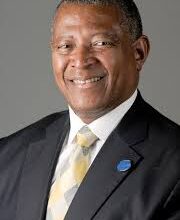Sewage project planned, waiting on loan
Published 11:25 pm Wednesday, April 23, 2014
City of Selma officials are confident the city’s application for a $4.1 million loan, funded through the Alabama Department of Environmental Management, will be approved in the coming months. Following receipt of the loan funds, city officials plan to rehabilitate nine miles of sewer lines.
The city is currently in an environmental survey phase. City engineering consultant Ray Hogg said city officials should know whether ADEM approved Selma’s loan application by late August or early September.
Hogg said Selma cleared a pre-application process and has a good chance of securing the loan. Selma Mayor George Evans said he is confident in the city’s chances but was conservative with his estimate — greater than 50 percent — about the city’s chances.
An environmental impact study and a city council vote are the only remaining hurdles.
“ADEM only told the cities that they knew they could fund to submit a full application,” Hogg said. “[ADEM] knows they have enough money set aside.”
The project would mostly focus west of Broad Street, including rehabilitating a concentrated group of sewer lines near Concordia College and a long string of sewer line near Valley Creek, according to city documents. Other planned areas are scattered throughout the city.
Evans said city officials partially selected the sewer line rehabilitation locations based on areas not fixed in previous projects.
“This was done many years ago by the former Mayor Joe Smitherman,” Evans said. “What we are doing now is targeting the areas that weren’t able to get done during his administration.”
Even after the loan is granted, Hogg said it would be more than a year before the entire project is complete. He said construction alone would take about 18 months.
The city is seeking a $2 million forgiveness built into the loan, meaning the city wouldn’t have to repay ADEM for about 50 percent of the loan. Evans said he isn’t sure if the forgiveness will be granted.
If awarded, Evans said the city would be required to pay approximately $240,000, per year, for 20 years.
The repayment is significantly less than the approximately $360,000 the city pays yearly for various sewer line collapses, Hogg said.
“I believe [the sewer project] is necessary and there’s no doubt about it,” Evans said.
A funding source hasn’t been determined to repay the loan, but Evans suggested the half-cent sales tax as a possible method.
The half-cent tax generates about $1.2 million per year. The council uses it to pay for miscellaneous expenses, but also plans to use it for employee pay raises in December 2014.
Councilman Cecil Williamson suggested the city use a separate fund — the gasoline tax — as a method of repayment.
“We have previously been using the gasoline tax to pay for sewer problems in the city,” he said. “I don’t see any reason why we couldn’t use the gasoline tax to repay the loan. The half-cent sales tax needs to be used for employee raises.”
Regardless of the funding source, both Williamson and Evans said the city wouldn’t have an issue finding money for loan repayments.





